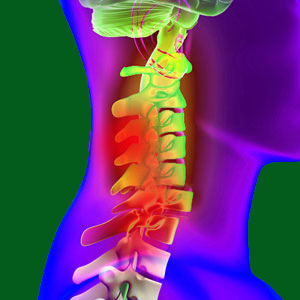
The psychology of spondylolisthesis is just as important as the physiology of the spinal condition. This is a fact rarely considered by doctors who diagnose and treat listhesis, much to the detriment of their patients.
Spondylolisthesis is a fear-inspiring disorder of the vertebral column that can cause profound negative effects simply through the nocebo effect of the diagnosis. The psychoemotional consequences of the condition can actually be far worse than the physical ones and may lead to chronic pain, disability and a downward spiral of health and wellness.
This very important dialog explores the psychological impact of the spondylolisthesis diagnosis and provides guidance for caregivers and patients on managing the condition from a psychological point of view.
Psychology of Spondylolisthesis Considerations
Doctors excel at diagnosing and treating the anatomical issues associated with listhesis. However, they often neglect to realize that humans are not machines. Instead, humans are acutely affected by the psychoemotional effects of everything that occurs in their lives. When it comes to health, the mindbody effects of a diagnosis of vertebral migration can be devastating.
Doctors often make patients overly fearful due to their lack of compassion or even out of the purposeful infliction of nocebo effect to force patients to acquiesce towards the most expensive and invasive treatments. This cluelessness or greed can have permanent negative consequences on the health of the patient and might even set the stage for a lifetime of suffering.
Therefore, doctors must be very careful how they handle patients who are diagnosed with listhesis. They should present the facts of the diagnosis without inflicting unnecessary worry or using the occasion to increase their own financial windfalls. Doctors should always remember that a mind exists inside every body and if damaged by nocebo effect, this fearful and anxiety-filled mind will make good health impossible for a very long time.
Spondylolisthesis Psychological Consequences
The nocebo effect of spondylolisthesis is very powerful. Patients imagine their spine growing more unstable by the day and the important neurological tissues inside the spine being compressed. In some cases, this is actually occurring, but in most cases of mild to moderate listhesis, this anxiety is largely unnecessary. Most cases will not cause severe symptoms and many will remain completely asymptomatic for life.
However, once the mind feels that the spine is damaged, it will use the opportunity to located pain there often due to a primary gain need to conceal repressed sensitive emotions that may or may not be related to the listhesis condition itself. This idea forms the basis of Dr. John E. Sarno’s groundbreaking work on tension myositis syndrome and is now known to be indisputable scientific fact.
People suffering from the nocebo effect of spondylolisthesis may develop recurrent attacks of acute pain, chronic pain or complete disability not due to their defective spines, but instead due to the mind taking the opportunity to create a psychogenic symptom set that is extremely convincing due to the structural presentation of the spine. This is the reason why so many patients suffer poor results from various back and neck pain treatments for listhesis and other diagnoses. It is not the treatments that are actually failing; it is the diagnosis. The actual reason for the pain is not the spinal abnormality, but the psychoemotional impact of the abnormality leading to a mindbody pain syndrome. This is why treatment fails more than any other single reason.
Attending to the Psychology of Spondylolisthesis
Knowledge is the most powerful weapon against any type of nocebo effect. Knowledge is also the only effective treatment for chronic mindbody syndromes. This is why the treatment for these conditions is actually named knowledge therapy.
Patients are strongly urged to take very active roles in their diagnosis and treatment. Learn all you can about your diagnosis and make sure to ask lots of questions from your care providers. Always get a second opinion on any diagnosis or treatment recommendation from an impartial doctor. If any care provider seems to be using fear or intimidation to make you acquiesce towards treatment (which may not even be needed), find a new doctor.
Simply learning the real facts of spondylolisthesis will help to reduce the burden of the nocebo effect and reassure the mind in cases of minor to moderate grades of vertebral migration. This website was created to help you to achieve this goal, so please make use of it, as well as the other sites in The Cure Back Pain Network. We are objective, honest and above all, want you to be healthy. We do not want to make money from you or force you to have ongoing therapy with us, surgery from us, or any other profitable treatment.
Caregivers are reminded to be gentle with words and images when dealing with your patients. Always put yourself in their shoes and imagine how they must be suffering. Do nothing to increase fear or anxiety and only present the facts as they objectively exist. Do not inspire a future of uncertainty unless it is the inevitable truth. Even then, be gentle, reassuring and compassionate in all that you do if you really care about good health and want to foster it in your patients…
Spondylolisthesis > Psychosomatic Spondylolisthesis Pain > Psychology of Spondylolisthesis



